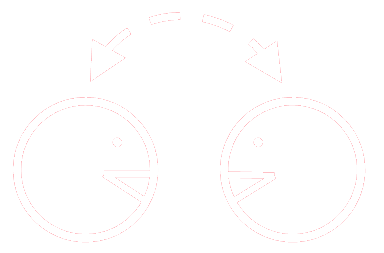Mastering a new language can be daunting, especially if you’re new to the language learning process. You may find yourself coming up with questions such as where do I begin?
Don’t worry, anyone who has learnt a second language has felt like that at one time or another. The good news is you can learn a new language, no matter how daunting it may seem! Better yet, there are some tried and proven ways to help you learn your language quickly and proficiently. So take a deep breath and read on, then you’ll have the basic knowledge you’ll need to start learning Korean.
Be Dedicated
The first step may seem like the simplest, but in fact, being truly dedicated to learning Korean is often the missing piece for many learners. Learning any language takes time and commitment, and you will be sure to face some unwanted and unforeseen challenges along the way. The key is to be dedicated enough in your learning to get through the more difficult times and stick with it. Ask yourself the question: do I really want to learn this language and do I have the time to commit to it? If you answered yes confidently to both parts, then you’ve already passed the highest hurdle in your learning.
Find Your Resources
It would be a little difficult to start learning Korean without any resources at hand, and let me tell you, there are tons out there, both free and for a fee. Here is a short list of some of the many resources you’ll find on the web that give you access to some valuable Korean learning material. Make a quick web search yourself to uncover some more of these gems!
As you probably know LRNGO is a site offering a free platform for you to connect with a tutor, online class, or language exchange partner. If you’re looking for a free way to learn, consider the latter option and connect with a language exchange partner. Use your skills to teach them and let them teach you Korean—without paying a penny.
Whether you make use of a paid option or a language exchange partner, having human guidance during your learning process is essential as they will be able to adjust lessons to fit your needs, give you cultural input, and be a conversation partner.
Korean 101 has it all. From outside links to Korean radio, news, and TV for practice, as well as in-site pronunciation, vocabulary, and grammar help, you’ll be sure to find this site valuable no matter what your skill level.
Weekly Korean is a site full of valuable tools, but they are best used for their great podcasts. You can listen from anywhere doing most anything and get valuable listening practice. These are recommended for those who have a grasp on Korean basics.
Korean Class 101 is a YouTube channel that is dedicated to teaching the basics of Korean to beginners, for free. From vocabulary, writing, and pronunciation help, this is a great place to get started on your learning.
Digital Dialects is a site that focuses on providing users with free online exercises to help test their language learning progress. This is a perfect way to take a break from rigorous study and see how much of it is actually sinking in.
Make a Schedule
Because of that dedication and commitment previously mentioned, if you’re truly interested in learning Korean, you’ll have to plan out your study schedule to ensure that you make enough time each day for your studies and that you get well-rounded practice on all aspects of the language. Figure out what works best for you in terms of time and material; just remember that you must keep it consistent. Don’t try to cram once a week and expect to see results, spread your studies out daily or every other day, which is much more efficient than cramming all your studies into one day.
Practice, Practice, Practice!
Now that you’ve decided that you’re dedicated, you have your resources in line, and you have a study schedule, your next step is to really get practicing. It’s important to recognize the multilayered components of a language and dedicate sufficient practice to all of them. Be sure that you work on reading, writing, speaking, and listening to Korean so that you really will have a working knowledge of the language.
Photo Credit: Republic of Korea





